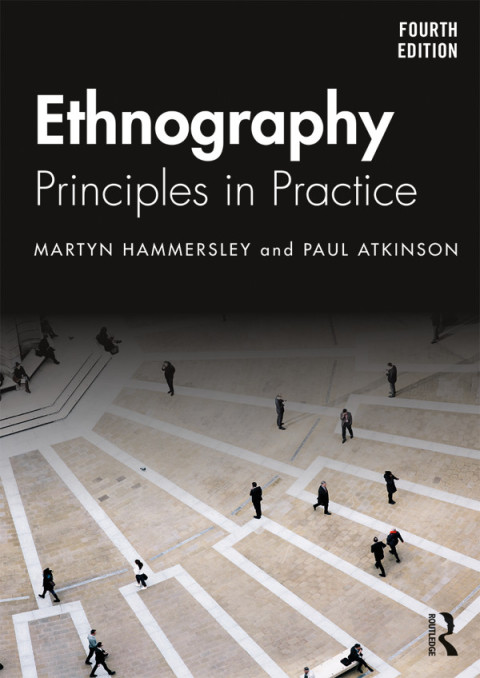Description
Efnisyfirlit
- Cover Page
- Half Title
- Title Page
- Copyright Page
- Dedication
- Table of Contents
- List of Figures
- Acknowledgements
- Preface to the Fourth Edition
- 1 What is Ethnography?
- What Ethnographers do
- Positivism Versus Naturalism
- Constructionist and Political Critiques of Naturalism
- Reflexivity
- Conclusion
- 2 Research Design: Problems, Cases, and Samples
- Foreshadowed Problems
- The Development of Research Problems
- Selecting Settings and Cases
- Settings and Cases
- Cases and Generalization
- Sampling Within the Case
- Conclusion
- 3 Access
- Approaching the Field
- Gatekeepers
- Covert or Open?
- Conclusion
- 4 Field Relations
- Initial Responses
- Impression Management
- Providing Goods and Services
- Building Relationships
- The Personal Characteristics of the Researcher
- Field Roles
- Managing Marginality
- The Strains and Stresses of Fieldwork
- Leaving the Field
- Conclusion
- 5 Oral Accounts and the Role of Interviewing
- The Value of Accounts as Data
- Unsolicited and Solicited Oral Accounts
- Ethnographic Interviewing: Selecting Informants
- Interviews as Participant Observation
- The Interview as Process
- Types of Question
- Conclusion
- 6 Documents and Artefacts, Real and Virtual
- Documents
- The Social Life of documents
- Artefacts
- Conclusion
- 7 Ethnography in the Digital World
- Ethnography’s Multimodal Character
- Ethnography in Digital Spaces
- Managing Data in a Digital Environment
- Conclusion
- 8 Recording and Organizing Data
- Documents and Other Materials
- Recording Observations and Interviews: Fieldnotes
- Digitally Recording Observations and Interviews
- Analytic Notes and Fieldwork Journals
- Data Storage, Indexing, and Retrieval
- Conclusion
- 9 The Process of Analysis
- Progressive Focusing: Problems, Descriptions, Explanations, Theory
- An Emphasis on Action
- Generating Ideas and ‘Coding the Data’
- Constant Comparative Method: Developing the Central Categories
- Developing Typologies and Models
- Theories and the Comparative Method
- Types of Theory
- Concepts and Indicators
- ‘Respondent Validation’ or ‘Member Checking’
- Triangulation
- Conclusion
- 10 Writing Ethnography
- Styles of Reconstruction
- Types and Instances
- Ethnographic Tropes
- Scenes, Dialogue, and Narrative
- Tragic and Analytic Irony
- Audiences, Styles, and Genres
- Writing and Representations
- Writing, Reflexivity and Responsibility
- 11 Ethics
- Informed Consent
- Consequences for Future Research
- The Issue of Ethical Regulation
- Conclusion
- Epilogue: A Distinctive Analytic Sensibility
- Getting the View from Inside and from Outside
- The Particular Versus the General
- Process Versus Structure
- Discovery Versus Construction
- Conclusion
- References
- Index






Reviews
There are no reviews yet.